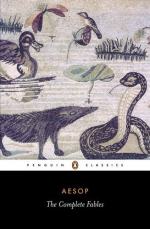|
This section contains 186 words (approx. 1 page at 300 words per page) |

|
SOURCE: John Locke, "Some Thoughts Concerning Education," in The Educational Writings of John Locke, edited by John William Adamson, Edward Arnold, 1912, pp. 21-180.
In the following excerpt, reprinted in 1912, Locke describes Aesop's fables as entertaining and containing useful moral instruction for the young.
[When a child] begins to be able to read, some easy, pleaxssant book, suited to his capacity, should be put into his hands, wherein the entertainment that he finds might draw him on, and reward his pains in reading; and yet not such as should fill his head with perfectly useless trumpery, or lay the principles of vice and folly. To this purpose I think Æsop's Fables the best, which being stories apt to delight and entertain a child, may yet afford useful reflections to a grown man; and if his memory retain them all his life after, he will not repent to find them...
|
This section contains 186 words (approx. 1 page at 300 words per page) |

|


